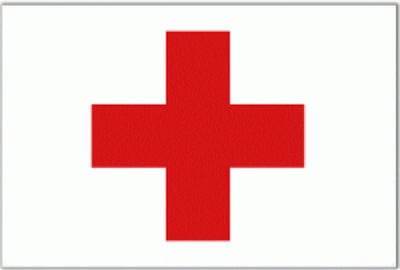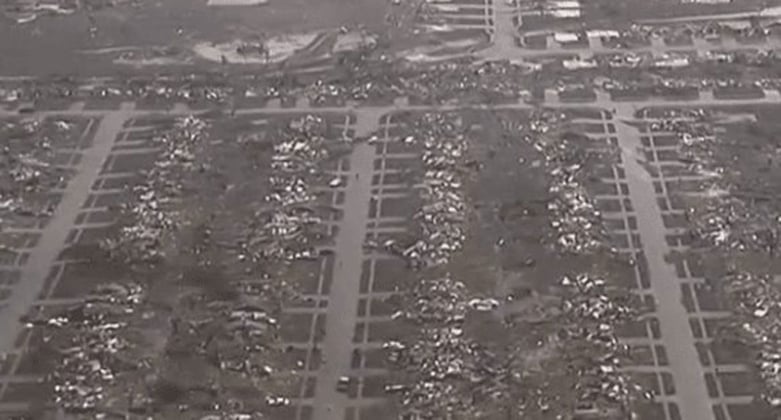When natural disasters like the Moore, Oklahoma tornado happen, with unknown death tolls and hundreds injured, the healthcare community needs to be prepared.
From natural catastrophes like Hurricane Sandy to terrorist attacks like the Boston Marathon bombings, what can medical students do to learn how to handle such events in their future careers? Get familiar with disaster medicine. Disaster medicine is unique because, unlike other areas of specialization, doctors only practice the full scope of the specialty during emergencies.
Because disaster medicine is practiced in crises, it is something for future doctors to consider as a second specialty. Disaster medicine physicians are board certified by the American Board of Physician Specialties (ABPS).
According to explorehealthcareers.org, disaster medicine “is, by definition, a high stress specialty. You never know when you will be sent to a scene or what to expect when you get there. The pressure is intense. You have to be comfortable getting your hands dirty and making life-or-death decisions on the spot.”
UMHS and Caribbean medical school students can get a head start on preparing for a specialty in disaster medicine by reading the American Journal of Disaster Medicine, which covers such topics as:
- Toxicological disaster
- Ethics in disaster medicine
- Confined space training for medical response to collapsed structures
- Open brain injury
- Treating large numbers of injured people
- Evaluating patients for exposure to various chemical, biological and radioactive agents.
Some U.S. hospitals have residencies and many have fellowships in Emergency Medical Services (EMS) and Disaster Medicine, an area of physician medical specialization that offers out-of-hospital care in both emergency and non-emergency situations. Hospitals with disaster medicine fellowships are located all over the nation.
In Philadelphia, EMS and Disaster Medicine doctors at one healthcare network deal with “hazardous materials, weapons of mass destruction, technical rescue, mass gatherings, fire ground operations, tactical medicine and major incident management.”
Fellowships include training in “ground and air operations, hazmat training, paramedic didactic and clinical instruction, administrative and research experiences, community resource management, disaster planning and training opportunities, dispatch/communication operations and exposure to all models of EMS agencies (volunteer, career, public service, regional and state).”
The Web site for ABPS says, “Ideally, every hospital should have at least one physician who is certified in disaster medicine.”
The ABPS offers disaster medicine certification and recertification through the American Board of Disaster Medicine (ABDM) to prepare doctors for medical crises resulting from earthquakes, hurricanes, tornadoes, pandemic outbreaks, terrorist attacks, and various natural and manmade disasters.
The ABPS points out, “Eligibility requirements for disaster medicine certification from the ABPS are rigorous, but that’s where the disaster medicine training comes into play, along with networking opportunities with established leaders in the disaster medicine field. Disaster medicine certification focuses on everything a physician will need to know in order to become a recognized leader in the four primary stages of disaster preparation and management: planning, coordination, execution, and debriefing.”
Certification in disaster medicine encompasses competency in the following areas:
- A basic knowledge of the National Incident Management System and the Incident Command System
- The importance of safety in disaster responses, including protective equipment, decontamination, and site security
- The principles of triage in a disaster setting
- The clinical competence to provide effective care with extremely limited resources
- Understanding of psychological first aid and caring for responders.
How to Help: Moore, Oklahoma Tornado Relief
The tornado in Moore, Oklahoma has left 24 people dead, including nine children, and more than 230 injured. The following charitable organizations are offering relief:
American Red Cross
 The American Red Cross has shelters open in Oklahoma, and Red Cross Emergency Response Vehicles are delivering hot meals throughout the affected areas. The Red Cross is also working to link loved ones in Moore through a Web site called Safe and Well. Text REDCROSS to 90999 to give $10 to American Red Cross Disaster Relief, donate online or by phone at 1-800-RED CROSS.
The American Red Cross has shelters open in Oklahoma, and Red Cross Emergency Response Vehicles are delivering hot meals throughout the affected areas. The Red Cross is also working to link loved ones in Moore through a Web site called Safe and Well. Text REDCROSS to 90999 to give $10 to American Red Cross Disaster Relief, donate online or by phone at 1-800-RED CROSS.
Salvation Army
The Salvation Army has activated disaster response teams and mobile feeding units to help residents and rescuers in Moore, OK and other areas affected by tornadoes. Donate online or text STORM to 80888 to contribute $10 to the Salvation Army's relief efforts or make a donation by phone at 1-800-SAL-ARMY. If sending a check, put the words "Oklahoma Tornado Relief" on the check, and mail it to: The Salvation Army, P.O. Box 12600, Oklahoma City, OK. 73157.
Operation USA
Los Angeles-based international relief agency Operation USA is providing emergency aid where needed to community-based health organizations across Oklahoma. Donate online or by phone at 1-800-678-7255, or by check made out to Operation USA, 7421 Beverly Blvd., PH, Los Angeles, CA 90036. Donate $10 by texting AID to 50555.
Feed the Children
This Oklahoma City-based children’s advocacy group is collecting donations to support tornado relief. Donations can be made online or by phone at 1-800-627-4556.
(Top photo) A screencapture from KFOR’s coverage shows the massive damage caused by the tornado. Photo: KFOR
About UMHS:
Built in the tradition of the best US universities, the University of Medicine and Health Sciences focuses on individual student attention, maintaining small class sizes and recruiting high-quality faculty. We call this unique approach, “personalized medical education,” and it’s what has led to our unprecedented 96% student retention rate, and outstanding residency placements across the US and Canada. UMHS is challenging everything you thought you knew about Caribbean medical schools.

Scott is Director of Digital Content & Alumni Communications Liaison at UMHS and editor of the UMHS Endeavour blog. When he's not writing about UMHS students, faculty, events, public health, alumni and UMHS research, he writes and edits Broadway theater reviews for a website he publishes in New York City, StageZine.com.















